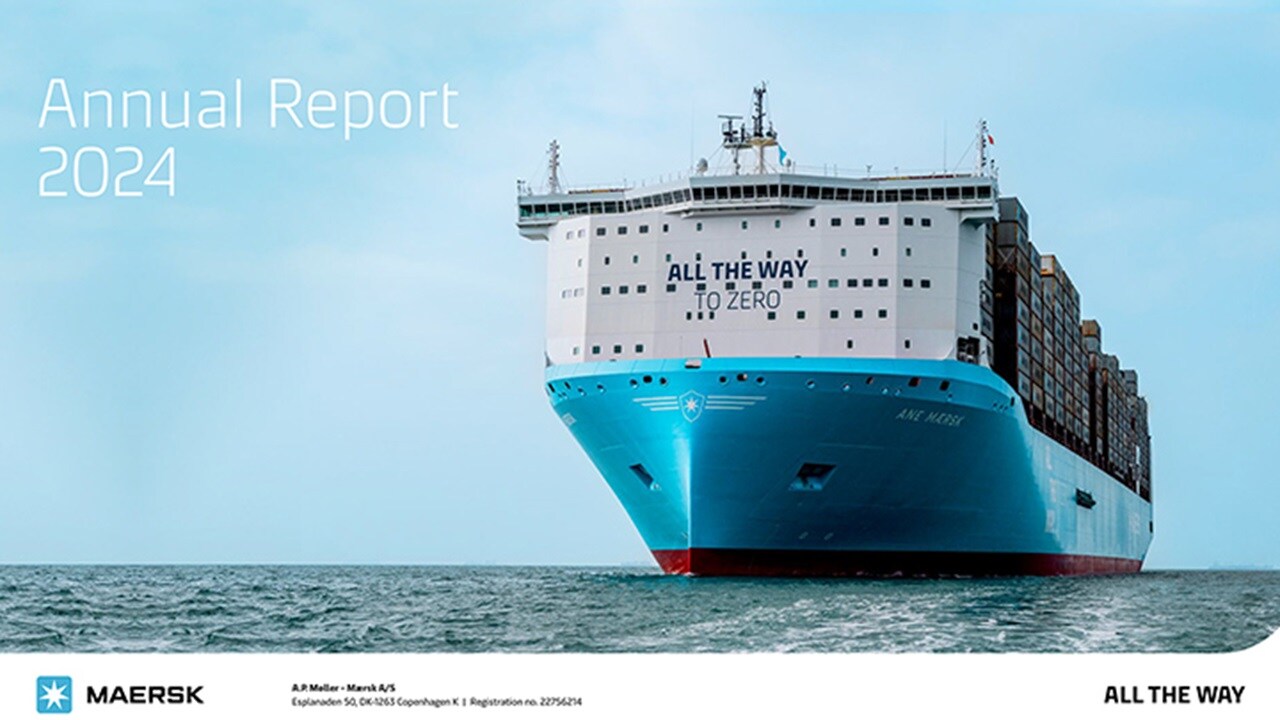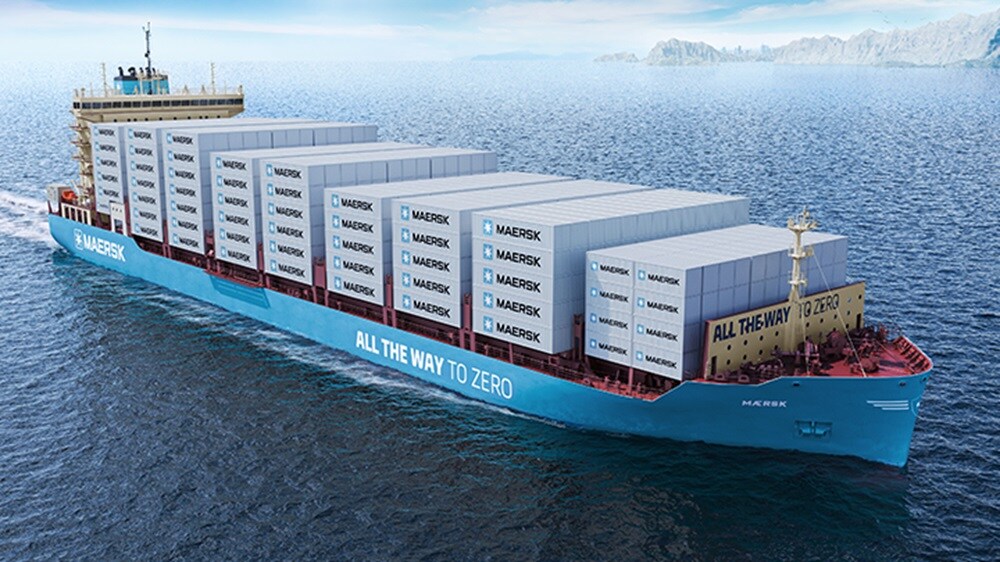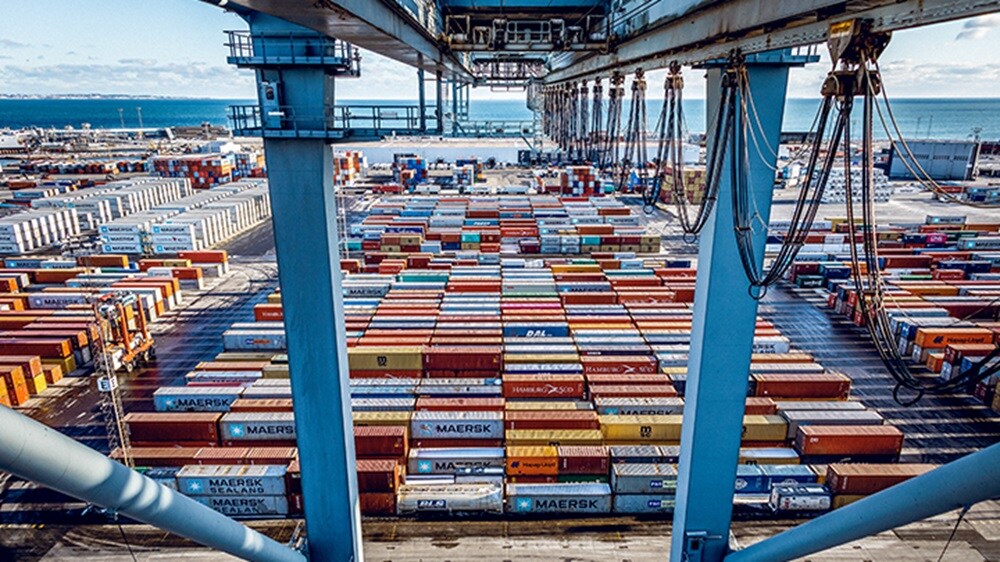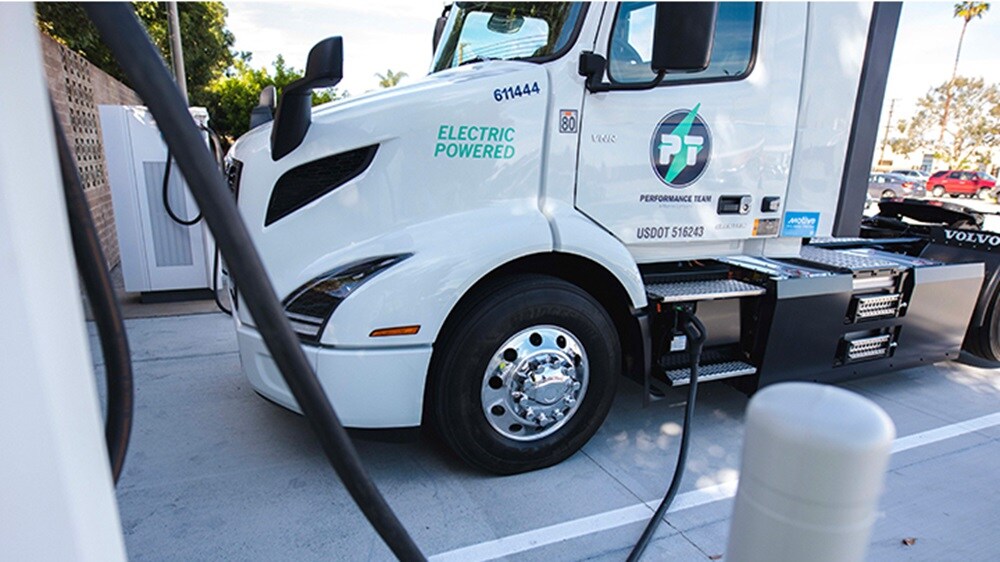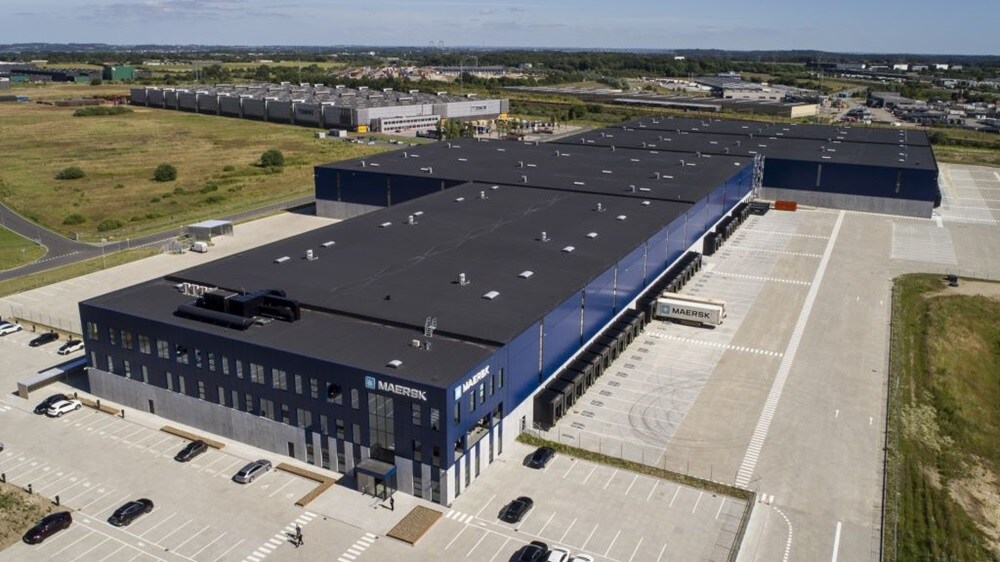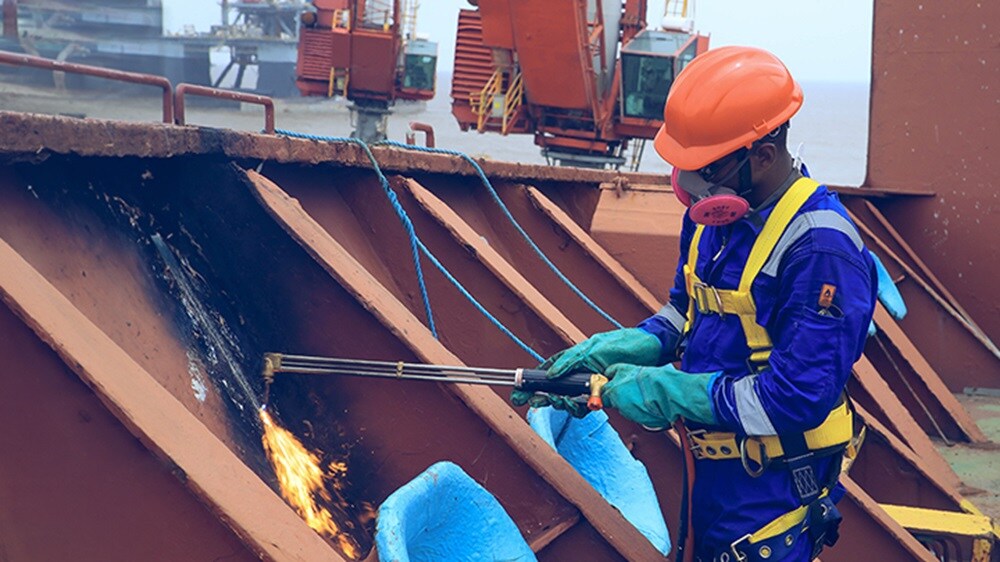
Climate change
The world is facing a climate crisis. We see it as our obligation - as an industry leader and with the resources available to us - to do all we can to get to net zero operations as fast as possible and to help our customers decarbonise their global supply chain end to end.
Why action on climate change matters
As a key player in global logistics supply chains Maersk is committed to leading the decarbonisation of logistics and taking responsibility for being a part of the solution.
The world is facing a climate emergency, impacting not only the environment and broader nature, but also people’s health and economic prosperity.
As an industry leader, we consider it our obligation to take decisive action to reach net-zero greenhouse gas (GHG) emissions across our operations, to the benefit of our customers and society at large, and to our shareholders and our business by mitigating transition risks. Our approach is guided by the recognition that climate-related risks, and government and market actions to mitigate such, will have an impact on how we operate.
Our ambition
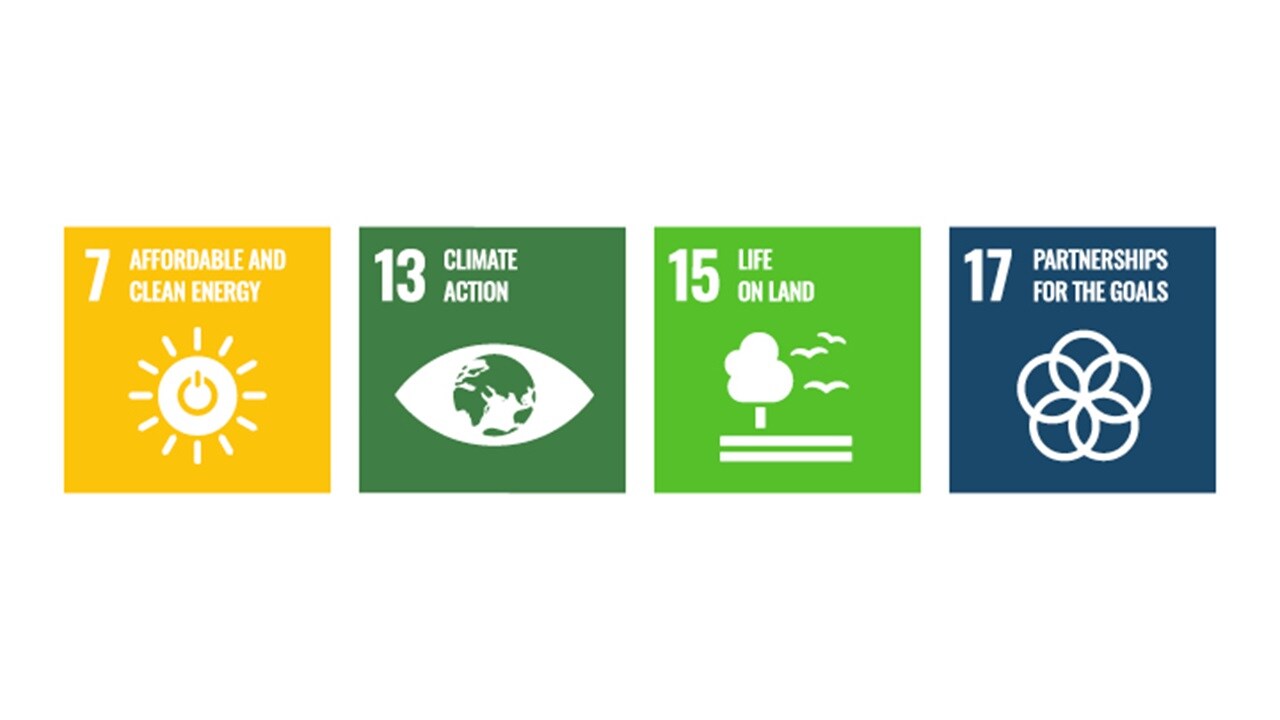
Our race to net zero
In early 2024, Maersk reached an important milestone with validated science-based targets. A major focus since then has been on further refining the transition plan and driving the investments and actions needed to take us from where we are today to where we need to be in 2030 and 2040 to meet those targets.
Our climate transition plan
Our climate transition plan outlines the levers and scenarios to reach our science-based commitments towards 2030, taking into consideration key uncertainties and complexities. The plan encompasses GHG emissions from our own operations and value chain, covering our end-to-end logistics customer offerings across ocean, land and air.
Please read more about our climate transition plan in the 2024 Annual Report.
Maersk’s climate commitments

- Maersk’s transition plan from 2030 to 2040 will include continued focus on energy efficiency and fuel shifts and the impacts of dependencies such as regulation, technology, market growth. The plan will be unfolded further in the coming years.
- Residual emissions will be neutralised through natural climate solutions in accordance with the Net Zero criteria of the Science Based Targets initiative.
Overall Net-Zero Target
Validated science-based targets*
Aligned with a 1.5-degree pathway by 2030:
35% absolute reduction in total scope 1 emissions100% renewable electricity sourcing 22% absolute reduction in total scope 3 emissions
Net Zero by 2040:
96% absolute reduction in total scope 1 and 2 emissions90% absolute reduction in total scope 3 emissions
Near-Term Targets towards 2030
- Maersk commits to reduce absolute scope 1 GHG emissions 34.7% by 2030 from a 2022 base year.*
- Maersk also commits to reduce absolute scope 3 GHG emissions 21.9% within the same timeframe.
- Maersk commits to reduce absolute well-to-wake scope 1 and 3 GHG emissions from container shipping operations 34.7% by 2030 from a 2022 base year.
- Maersk also commits to reduce absolute scope 1 GHG emissions from all other sources 42% within the same timeframe.
- Maersk further commits to reduce absolute well-to-wake scope 3 GHG emissions from subcontracted container shipping operations 16.7% within the same timeframe.
- Furthermore, Maersk commits to reduce absolute scope 3 GHG emissions from use of sold products covering distributed fossil fuels 42% within the same timeframe.
- Maersk commits to reduce remaining absolute scope 3 GHG emissions from fuel and energy related activities and upstream transportation and distribution 25% within the same timeframe.
- Maersk also commits to increase annual sourcing of renewable electricity from 22.7% in 2022 to 100% by 2030.
* The target boundary includes biogenic land-related emissions and removals from bioenergy feedstocks
Long-Term Targets towards 2040
- Maersk commits to reduce absolute scope 1 and 2 GHG emissions 96% by 2040.*
- Maersk also commits to reduce absolute scope 3 GHG emissions 90% within the same timeframe.
- Maersk commits to reduce absolute well-to-wake scope 1 and 3 GHG emissions from container shipping operations 96.2% by 2040 from a 2022 base year.
- Maersk also commits to reduce absolute scope 1 and scope 2 GHG emissions from all other sources 90% within the same timeframe.
- Maersk further commits to reduce absolute well-to-wake scope 1 and 3 GHG emissions from subcontracted container shipping operations 97.1% within the same timeframe. Furthermore,
- Maersk commits to reduce remaining absolute scope 3 GHG emissions 90% within the same timeframe.
* The target boundary includes biogenic land-related emissions and removals from bioenergy feedstocks
Highlights in 2024
Actions on climate change
Priorities and actions
Greenhouse gas (GHG) emissions in 2024
Maersk’s GHG emissions footprint 2024 (in 1,000 tonnes CO2e)
| Performance 2024 | Maersk's GHG emissions |
|---|---|
|
Performance 2024
83,602
(2023: 77,717) |
Maersk's GHG emissions
Total GHG emissions
Including scope 1, scope 2 (location-based), and scope 3 emissions. |
|
Performance 2024
33,939
(2023: 32,404) |
Maersk's GHG emissions
Scope 1 emissions – from financially controlled own operation
Where 92% of the emissions come from our ocean operations related to fuel use. |
|
Performance 2024
431
(2023: 375) |
Maersk's GHG emissions
Scope 2 emissions – from generation of purchased electricity (location-based)
Where 56% of the emissions come from our terminals. |
|
Performance 2024
49,232
(2023: 44,938) |
Maersk's GHG emissions
Scope 3 emissions – created in the value chain as result of Maersk’s business activities |
Featured highlights and case stories
Building our methanol capable fleet
‘A.P. Møller’ is the most recent dual-fuel methanol capable vessel to enter our fleet. Built at Hyundai Heavy Industries in Ulsan, South Korea, she can carry 16,592 standard containers (TEU). Seven of these large dual-fuel methanol vessels joined the Maersk fleet in 2024.
A.P. Møller, in honor of Arnold Peter Møller, the founder of A.P. Moller - Maersk, was named in a ceremony in Singapore as part of her maiden voyage from Asia to Europe. Ms. Chan Su-Shan, the wife of the CEO of Temasek Holdings in Singapore, was the godmother.
These name giving events are important opportunities to engage with our customers, regulators, employees and business partners in welcoming the additions to our fleet and celebrating progress in the industry’s green transition.
Maersk has an additional nine large (16,000-17,000 TEU capacity) vessels scheduled for delivery in 2025 as well as six smaller dual-fuel (9,000 TEU) vessels coming in 2026- 2027.
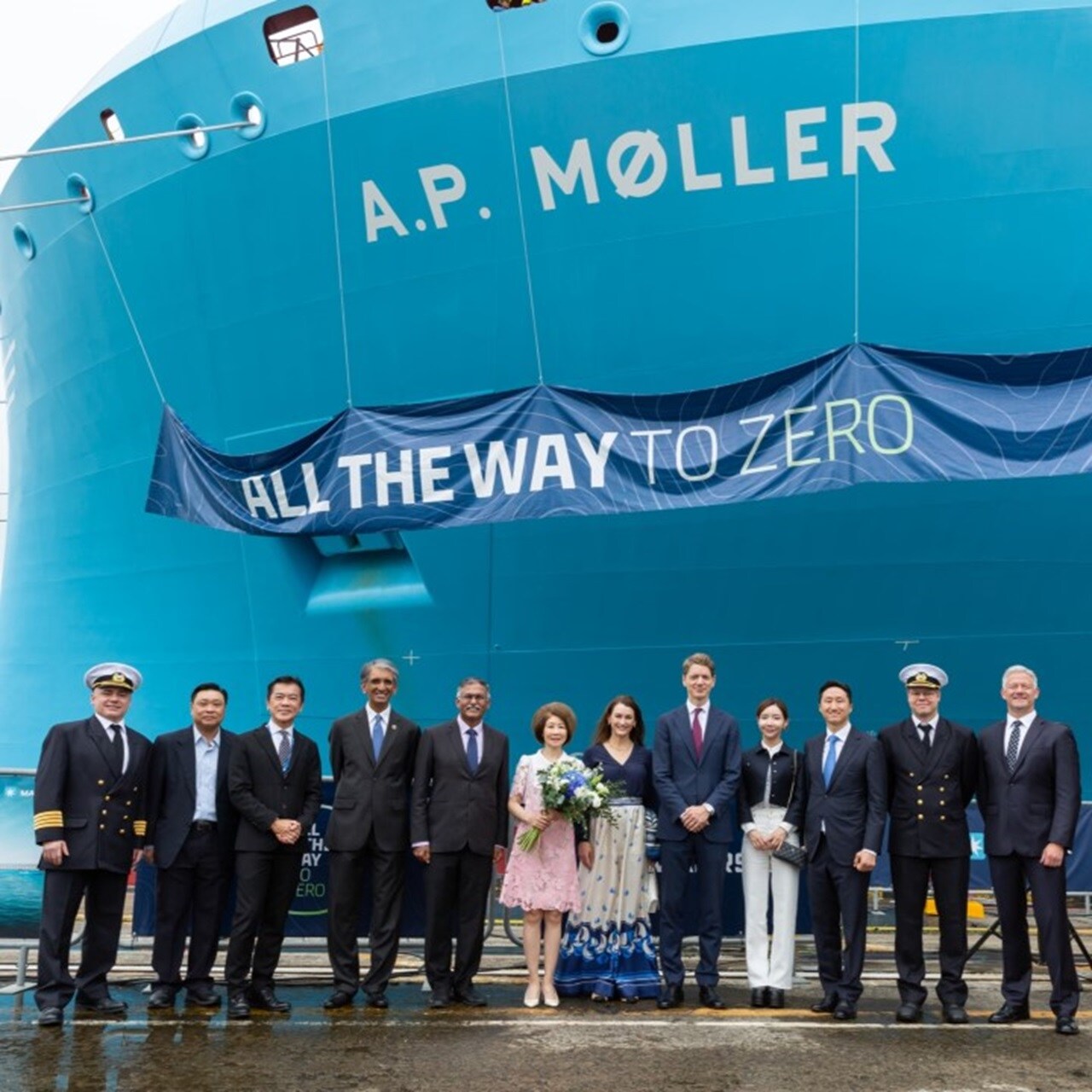
Climate related risks
The past decade has been the warmest on record globally, and 2024 became the first year to exceed 1.5°C above pre- industrial level. Our business, operational efficiency and employees can be directly impacted by physical climate risks including heat stress, precipitation, river floods, and wind and storm surge.
In 2022 we performed an assessment of the physical impact of climate change on Maersk’s business. 107 assets, including terminals, warehouses, data centres and third-party operated property, were mapped against prevailing climate hazards and modelled across multiple time horizons and climate scenarios. Estimated loss values were determined based on property damage and disruption costs. The assessment showed that most of the financial impact is concentrated around the five terminals and driven by their exposure to temperate windstorms, coastal flood, drought/water stress, heatwave, and hurricane and storm.
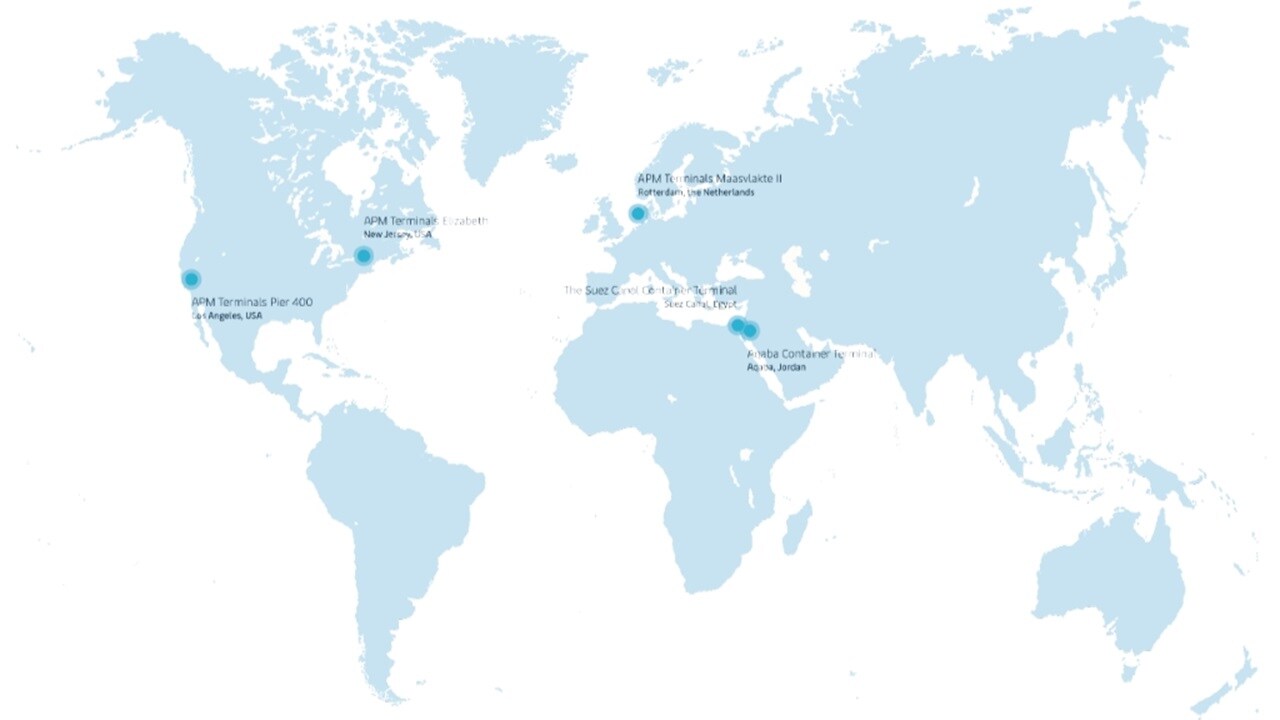
Regulatory drivers of climate progress
Regulatory debates also continue to impact our sector, as consensus and action on several topics critical to the energy transition remain elusive. While there has been promising regional progress in climate policy such as Fuel EU Maritime and the US Inflation Reduction Act, more ambitious and impactful policies are urgently needed at a global level.
2025 is a pivotal year for IMO policy setting, and the outcomes of IMO Marine Environment Protection Committee meetings in April and October will have a significant impact on the decarbonisation progress of Maersk, our customers and the industry as a whole in the coming years.
Maersk is committed to conducting all our policy outreach in alignment with the goal of limiting global temperature rise to 1.5°C. We actively engage with policymakers and stakeholders to advocate for regulations and policies that support this crucial objective, ensuring our business strategies are in harmony with global mitigation efforts.
Read more about our policies and positions here.
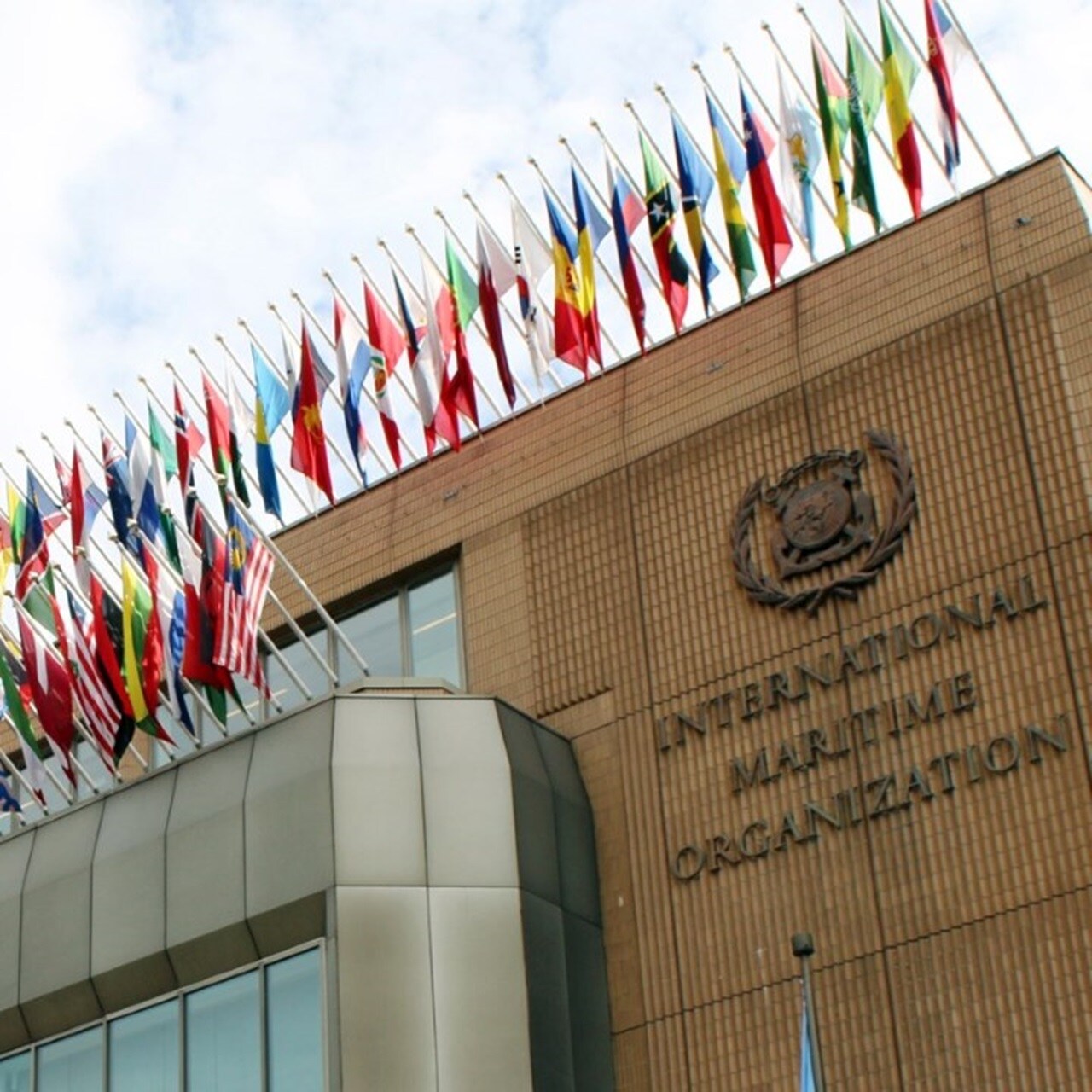
Active policymaker engagement on climate change
We participate in key global meetings on climate change such as New York Climate Week and UN COP meetings, emphasizing the need for stronger global commitments to maritime decarbonisation.
Maersk CEO Vincent Clerc participated in a panel discussion at the World Economic Forum in Davos, Switzerland on the supply chain and manufacturing transformation, where he discussed the importance of policy support, long-term commitment, and relationships throughout the value chain to drive the energy transition of the world’s supply chains.
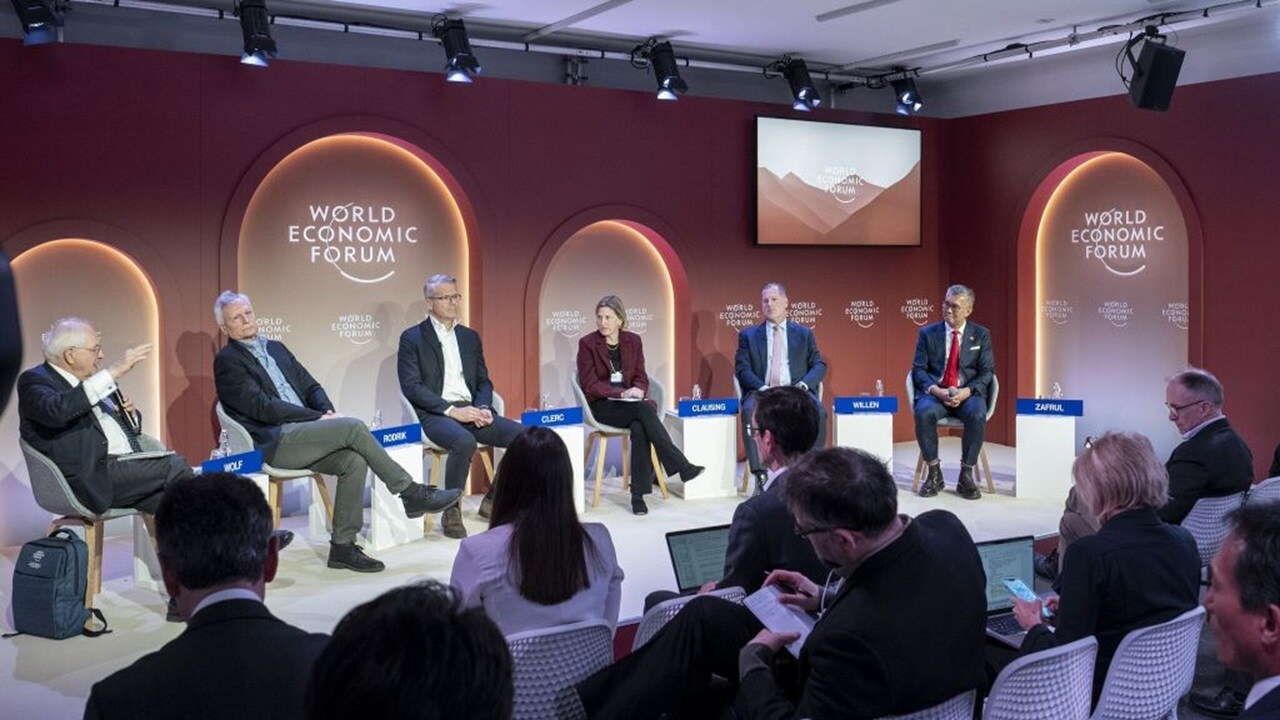
Annual Report 2024
